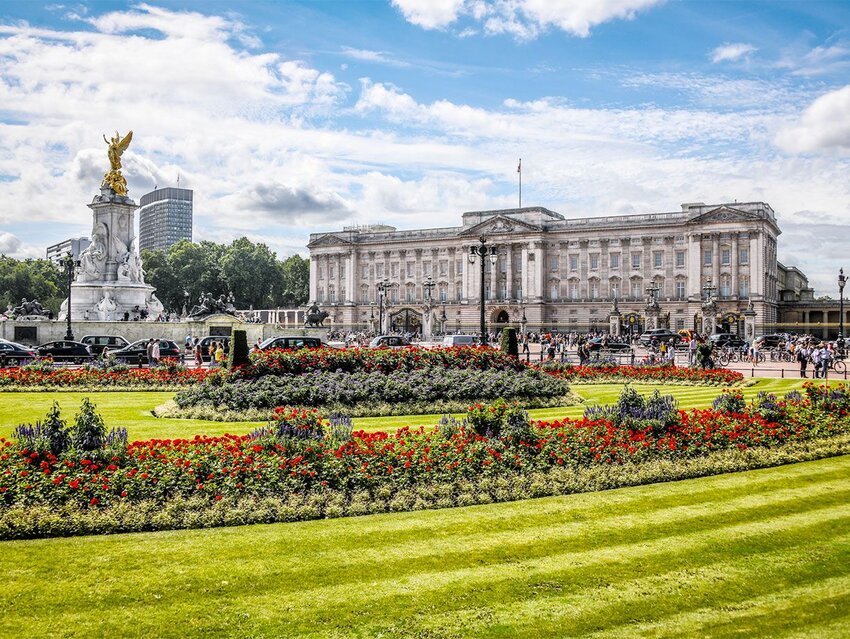Americans and Brits might speak the same language, but if you find yourself across the pond, it may feel like they’re using an entirely different dictionary over there. In the U.S., a bonnet is almost exclusively an old-fashioned head covering, but it’s the hood of a car in the U.K. — close in intention, but the definitions of many nouns diverged at some point. To help out any confused Anglophones, let’s take a look at some common words that are very different in British and American English.
Bangers
“Bangers and mash” is a quintessential British meal. In the U.K., of course, bangers are sausages. The term likely originated in WWI, when meat shortages caused sausages to be stuffed with extra fillers, including water, which made them explode when they were cooked. The “mash” portion of the dish is mashed potatoes.
Barrister
“Barrister” might sound close to the word for someone who works at a coffee shop (see: barista), but it is actually the British word for what Americans call a “lawyer.” The American job titles of “attorney” and “lawyer” are uncommon in the U.K.; instead, “solicitor” is the title for someone who gives legal advice from behind a desk (or in lower courts), and “barrister” refers to someone who pleads cases in higher courts.
Bonnet
Not only is a bonnet something worn on the top of the head, but in the U.K., it is also found on the top of the car. “Bonnet” is the word for an automobile hood and other metal coverings, such as a fireplace cover.
Chemist
The British idea of a chemist is a bit different than the American version. In the U.K., going to the chemist is similar to going to the drugstore in the U.S. It is a place that sells toiletries and medical supplies. The term can also be used as a synonym for “pharmacist.”
Courgette
This might sound like a fancy word, but its counterpart is simple: “zucchini.” The British borrowed their word from the French language; the Americans took from Italian. Both words translate to “little squash.” Similarly, the British call an eggplant an “aubergine."
Dustbin
The Brits have found a more polite way to describe the receptacle for trash: the dustbin.
Flat
In the U.K., “flat” is the most common term for what Americans would call an “apartment.” Condos are also referred to as flats. The British do have apartments, though — in the U.K., this word is used to describe a very upscale flat. Similarly, an attic in America could be called a “loft” in the U.K., and a stove is a “cooker.”
Liquidizer
What sounds like a superhero’s weapon is actually just a small appliance in British kitchens. A liquidizer (also spelled “liquidiser”) is the same thing as an American blender, with blades used for cutting and mixing.
Loo
“Loo” is an informal word for what Americans call the “bathroom” or “restroom.” The most popular theory about the origin of “loo” is that medieval servants would shout the French phrase regardez l’eau (meaning “watch out for the water”) when they emptied chamber pots out the window. The British turned it into “gardyloo,” which was eventually abbreviated into just “loo.” Heads up to travelers: You might also see “WC” or “water closet” marked on bathroom doors.
Lorry
In British English, a lorry is a large truck — the noun likely came from the earlier verb “lurry,” meaning “to pull.” It’s been used since the 1800s and originated as a railroad word for a long wagon with a flatbed and wheels. Today, “truck” is becoming more popular in British English, but “lorry” is still often used to describe a large vehicle used on highways for transporting goods.
Jumper
“Jumper,” the British version of the word “sweater,” is arguably more fun. It’s an old word, coming from the mid-17th-century word “jump,” which described a man’s short coat. The original term is of unknown origin, but could be related to the French word jupe, for “skirt.”
Sherbet
In America, sherbet (NOT spelled “sherbert”) is a sweet frozen treat akin to ice cream, but in the U.K., the word has a totally different meaning. To the British, sherbet is a sweet, candy-like powder that fizzes. More recently, it has become a colloquialism for beer or lager. So, inviting your friends to the pub for a few sherbets means to ask them out for drinks, not candy (or ice cream). The connection likely comes from the frothy tops of beer that bear resemblance to the fizzy candy.
Trainers
In the U.S., gym-goers might get workout help from a trainer, but in the U.K., they wear trainers, or sneakers, to the gym. It likely comes from the idea that the shoes are worn during exercise training. The term can be used for any athletic, rubber-soled shoe.
Trolley
For the British, a trolley is a shopping cart used at a grocery store. The word is also used to describe a table with four wheels (what Americans call a “cart”) or a hospital bed on wheels (a gurney).
Featured image credit: AleksandarGeorgiev/ iStock

